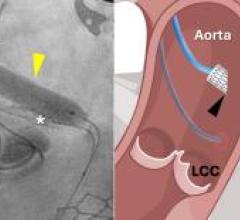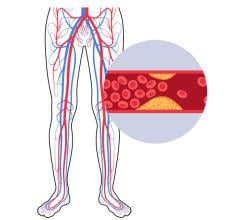June 8, 2010 – New study findings prove continuing warfarin therapy during pacemaker or defibrillator implantation in patients with moderate to high thromboembolic risk is safe and cost-effective. According to research published in the June edition of the HeartRhythm Journal, the official journal of the Heart Rhythm Society, cessation of warfarin with bridging anticoagulation resulted in a higher incidence of bleeding complications and a longer hospital stay. In addition, patients with temporarily interrupted anticoagulation suffered from a higher risk of transient ischemic attacks (TIA) than those who continued warfarin therapy.
The retrospective study evaluated 459 patients on warfarin therapy and underwent antiarrhythmic device surgery from April 2004 to September 2008 at Regions Hospital, a major teaching affiliate of the University of Minnesota Medical School. During the perioperative period, three groups matched in age, sex and risk factors for thromboembolism were observed. The patient groups included continued warfarin therapy (48 percent), cessation of warfarin with heparin bridging therapy (26 percent) and temporarily interrupted anticoagulation without bridging therapy (24 percent).
Overall study findings revealed patients who continued taking warfarin had a lower incidence of bleeding and a shorter hospital stay. The incidence of pocket hematoma formation was 16-fold in patients on heparin bridging therapy when compared to the patient group on continued warfarin therapy. Furthermore, patients who continued treatment on warfarin experienced no TIAs after the procedure while risks were reported for the patients with interrupted anticoagulation without heparin bridging therapy (3.5 percent) and the bridging therapy group (0.8 percent).
“Because of concerns about excessive bleeding and potential associated complications, many clinicians temporarily hold warfarin therapy with or without bridging therapy with heparin or enoxaparin in patients preparing to undergo device implantation,” said lead author Dennis W. Zhu, M.D., director of cardiac electrophysiology laboratory at Regions Hospital, St. Paul, Minn. and an associate professor of medicine at University of Minnesota. “While temporarily holding the use of warfarin with or without bridging therapy is a common and accepted practice in many cases, our study shows that continuing warfarin is in fact more beneficial to these patients from a safety and cost stand point.”
Current guidelines recommend stopping oral anticoagulation and starting bridging therapy with heparin or enoxaparin in patients at moderate to high risk for thromboembolic events. However, this study reveals that continuing warfarin therapy is more beneficial and may impact future decisions on patient treatment to improve overall outcomes.
For more information: www.heartrhythmjournal.com


 January 15, 2026
January 15, 2026 









